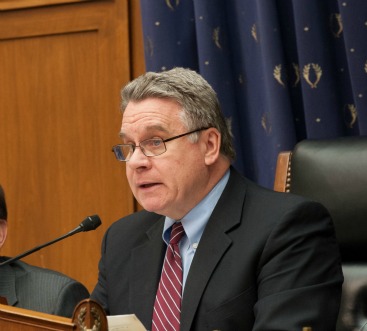Mr. Speaker, I thank the gentleman from New York for yielding me this time and for his work in helping to bring this legislation to the floor today. Mr. Speaker, as we wait to see if opposition candidate Vojislav Kostunica will be allowed to secure the election, which by all accounts he seems to have secured and won, it is important for this Congress to support those seeking democratic change in Serbia as well as those undertaking democratic change in Montenegro. This bill does just that.
Introduced by myself and several other cosponsors in February of 1999, and updated in light of events since that time, the bill before us today includes language to which the Senate has already agreed by unanimous consent. The State Department has been thoroughly consulted, and its requested changes as well have been incorporated into the text. Throughout there has been a bipartisan effort to craft this legislation. In short, the bill authorizes the provision of democratic assistance to those in Serbia who are struggling for change. It also calls for maintaining sanctions on Serbia until such time that democratic change is indeed underway, allowing at the same time the flexibility to respond quickly to positive developments if and when they occur. Reflective of another resolution, H. Con. Res. 118, which I introduced last year, the bill supports the efforts of the International Criminal Tribunal for the former Yugoslavia to bring those responsible for war crimes and crimes against humanity, including Slobodan Milosevic, to justice.
The reasons for this bill are clear, Mr. Speaker. In addition to news accounts and presentations in other committees and other venues, the Helsinki Commission, which I chair, has held numerous hearings on the efforts of the regime of Slobodan Milosevic to stomp out democracy and to stay in power. The Commission has held three hearings specifically on this issue and one additional hearing specifically on the threat Milosevic presents to Montenegro. Of course, in the many, many hearings the commission has held on Bosnia and Kosovo over the years, witnesses testify to the role of Milosevic in instigating, if not orchestrating, conflict and war.
Mr. Speaker, the regime of Milosevic has resorted to increasingly repressive measures, as we all know, to stay in power in light of the elections that were held yesterday in the Yugoslav Federation, of which Serbia and Montenegro are a part. Journalist Miroslav Filipovic received, for example, a 7-year sentence for reporting the truth about Yugoslav and Serbian atrocities in Kosovo. The very courageous Natasa Kandic, of the Humanitarian Law Fund, faces similar charges for documenting these atrocities. Ivan Stambolic, an early mentor but now a leading and credible critic of Slobodon Milosevic, was literally abducted from the streets of Belgrade. Authorities have raided the headquarters of the Center For Free Elections and Democracy, a civic, domestic monitoring organization; and members of the student movement Otpor regularly face arrest, detention and physical harassment. Political opposition candidates have been similarly threatened, harassed, and physically attacked.
As news reports regularly indicate, Milosevic may also be considering violent action to bring Montenegro, which has embarked on a democratic path and distanced itself from Belgrade, back under his control. Signs that he is instigating trouble there are certainly evident. It is too early for the results of the elections to be known fully. However, this bill allows us the flexibility to react to those results. Assistance for transition is authorized, allowing a quick reaction to positive developments. Sanctions can also be eased, if needed. On the other hand, few hold hope that Milosevic will simply relinquish power. A struggle for democracy may only now just be starting and not ending.
The human rights violations I have highlighted, Mr. Speaker, are also mere examples of deeply rooted institutionalized repression. Universities and the media are restricted by Draconian laws from encouraging the free debate of ideas upon which societies thrive. National laws and the federal constitution have been drafted and redrafted to orchestrate the continued power of Slobodan Milosevic. The military has been purged, as we all know, of many high-ranking professionals unwilling to do Milosevic’s dirty work, and the place is a virtual military force of its own designed to tackle internal enemies who are in fact trying to save Serbia from this tyrant. Paramilitary groups merge with criminal gangs in the pervasive corruption which now exists. Sophisticated and constant propaganda has been designed over the last decade to warp the minds of the people into believing this regime has defended the interests of Serbs in Serbia and throughout former Yugoslavia. As a result, even if a democratic change were to begin in Serbia, which we all hope and pray for, the assistance authorized in this bill is needed to overcome the legacy of Milosevic. His influence over the decade has been so strong that it will take considerable effort to bring Serbia back to where it should be.
Bringing democratic change to Serbia and supporting the change already taking place in Montenegro is without question in the U.S. national interest. We may differ in our positions regarding the decision to use American forces in the Balkans either for peacekeeping or peacemaking. Nothing, however, could better create the conditions for regional stability which would allow our forces to come home with their mission accomplished than a Serbia on the road to democratic recovery. There is, however, an even stronger interest. Indeed, there is a fundamental right of the people of Serbia themselves to democratic governance. They deserve to have the same rights and freedoms, as well as the opportunity for a prosperous future that is enjoyed by so many other Europeans and by our fellow Americans. The people of America, of Europe, the people of Serbia all have a strong mutual interest in ending Milosevic’s reign of hatred and thuggery. This bill advances that cause.





